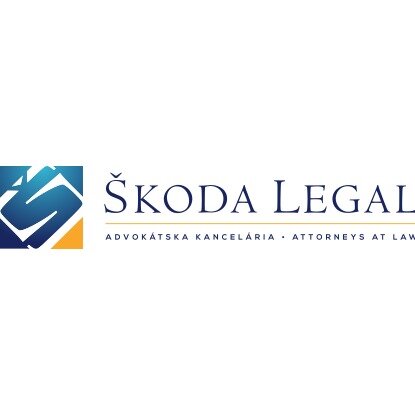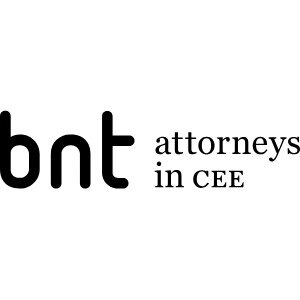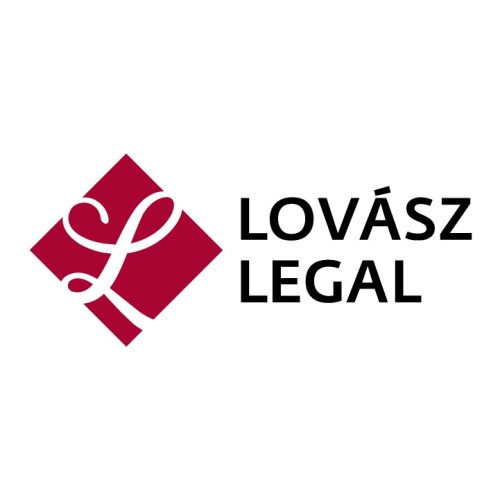Best Water Law Lawyers in Slovakia
Share your needs with us, get contacted by law firms.
Free. Takes 2 min.
Or refine your search by selecting a city:
List of the best lawyers in Slovakia
About Water Law in Slovakia
Water Law in Slovakia regulates the use, protection, and management of water resources, including rivers, lakes, groundwater, and related ecosystems. The core of Slovak Water Law is established in Act No. 364/2004 Coll. on Waters, commonly referred to as the Water Act. The legislation is in alignment with European Union directives, particularly those concerning water quality, pollution prevention, and sustainable management. The Water Act aims to balance the needs of economic development with environmental protection and public health.
Why You May Need a Lawyer
There are many situations where legal assistance may be needed in relation to Water Law in Slovakia. Some common scenarios include:
- Disputes over water usage rights between individuals, businesses, or municipalities
- Securing permits for activities that affect water bodies, such as construction, irrigation, or industrial processes
- Challenging government decisions related to water management or water protection zones
- Allegations of water pollution or violation of water protection laws
- Negotiating contracts or agreements for water supply and distribution
- Resolving boundary disputes involving rivers or lakes
- Inheritance or ownership issues related to water bodies or adjacent lands
Legal guidance ensures compliance with complex regulations and protects your rights and interests, whether you are an individual, a business, or a municipality.
Local Laws Overview
The central piece of legislation governing Water Law in Slovakia is the Water Act (Act No. 364/2004 Coll.), supported by several decrees and regulations. The law covers:
- The management and protection of surface and groundwater resources
- Conditions and procedures for obtaining water permits
- The designation and rules for water protection zones
- Prevention and control of water pollution
- Flood protection measures
- Responsibilities of public bodies, municipalities, and watercourse managers
- Penalties for illegal use or pollution of water resources
- Compensation for damages caused by water or water management activities
Slovakia's Water Law incorporates EU principles, such as the “polluter pays” principle and integrated water resource management, and requires public participation in key decisions.
Frequently Asked Questions
What activities require a water permit in Slovakia?
Water permits are necessary for activities including the extraction or use of surface or groundwater, discharging wastewater, constructing structures that impact watercourses, or interfering with water protection zones. The permit is issued by the district environmental office.
Who manages public watercourses in Slovakia?
Public watercourses are managed by designated state organizations, most notably Slovenský vodohospodársky podnik (Slovak Water Management Company). Private watercourses may be managed by landowners under certain regulatory conditions.
What are water protection zones?
Water protection zones are designated areas where activities are restricted to safeguard water resources used for drinking water or environmental protection. Restrictions may apply to construction, industrial activities, farming, or use of chemicals.
How can someone contest a decision about water rights or permits?
Decisions on permits or administrative actions can be contested through administrative appeals to higher authorities or, in some cases, through court proceedings. Deadlines for appeals are strictly enforced.
What are the penalties for illegal water use or pollution?
Penalties can include fines, mandatory remediation, suspension of activities, and compensation for damages. The severity depends on the nature and extent of the violation.
Can landowners use water from streams or groundwater on their property?
Limited use for personal or household needs may not require a permit, but larger withdrawals or usage for agriculture or business purposes typically require authorization from the competent authority.
Who is responsible for flood protection?
Flood protection involves cooperation between national authorities, municipalities, watercourse managers, and private landowners. Responsibilities are defined by law and include maintaining flood defenses and reporting hazards.
Are there rules for discharging wastewater into rivers or streams?
Yes, there are strict regulations on wastewater discharges. Permits are required, and quality standards must be met to protect water bodies from pollution.
How does the law address water pollution from agriculture or industry?
Both agricultural and industrial activities are subject to controls and permitted limits for emissions and runoff. Authorities monitor compliance and may impose penalties for violations.
What role do municipalities play in water management?
Municipalities are responsible for developing and maintaining local water infrastructure, supplying water, disposing of wastewater, and collaborating with state authorities on broader water management issues.
Additional Resources
For further information or assistance, the following resources may be helpful:
- Ministry of Environment of the Slovak Republic - the main body responsible for policymaking and overseeing water management
- District Environmental Offices - local authorities handling permits and regulatory enforcement
- Slovak Water Management Company (Slovenský vodohospodársky podnik) - manages state-owned watercourses and related infrastructure
- Public Health Authority - monitors water quality for public health
- Environmental legal clinics or non-governmental organizations specializing in water protection
Next Steps
If you require legal assistance concerning Water Law in Slovakia, consider the following steps:
- Gather all relevant documents relating to your issue, such as permits, correspondence, maps, or official decisions.
- Write down the timeline of events and a summary of your situation or concerns, highlighting any deadlines or urgent actions.
- Contact a qualified lawyer or legal advisor who specializes in environmental or administrative law. Many law firms offer initial consultations to assess your case.
- Reach out to the relevant governmental body if your issue involves permits, appeals, or enforcement actions.
- Monitor official deadlines to exercise your rights and avoid missing opportunities for appeals or negotiation.
- Consider mediation or negotiation for disputes, as these can sometimes resolve issues faster and with less expense.
- Keep up to date with changes in Slovak and EU water law, especially if your activities are ongoing or subject to future permitting.
Legal matters in the field of Water Law can be complex, but with the right information and expert guidance, you can protect your interests and ensure compliance with Slovak regulations.
Lawzana helps you find the best lawyers and law firms in Slovakia through a curated and pre-screened list of qualified legal professionals. Our platform offers rankings and detailed profiles of attorneys and law firms, allowing you to compare based on practice areas, including Water Law, experience, and client feedback.
Each profile includes a description of the firm's areas of practice, client reviews, team members and partners, year of establishment, spoken languages, office locations, contact information, social media presence, and any published articles or resources. Most firms on our platform speak English and are experienced in both local and international legal matters.
Get a quote from top-rated law firms in Slovakia — quickly, securely, and without unnecessary hassle.
Disclaimer:
The information provided on this page is for general informational purposes only and does not constitute legal advice. While we strive to ensure the accuracy and relevance of the content, legal information may change over time, and interpretations of the law can vary. You should always consult with a qualified legal professional for advice specific to your situation.
We disclaim all liability for actions taken or not taken based on the content of this page. If you believe any information is incorrect or outdated, please contact us, and we will review and update it where appropriate.
Browse water law law firms by city in Slovakia
Refine your search by selecting a city.














